Study in Australia
Among the most favoured places of international students worldwide, Australia is probably in your list of places to go, too! Here’s a quick yet detailed guide to the country, what to expect and the best colleges and universities when you decide to study in Australia.
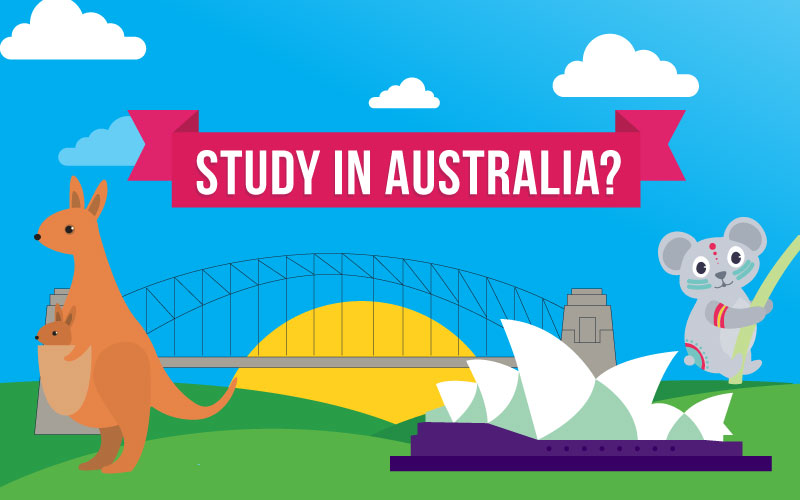
A Quick Intro to Australia

Sunny skies, awesome beaches, delicious foods, and friendly locals are just some of the reasons why you would like to go to Australia. But aside from these, the country also has 7.69 million km² of outback, desert, and jungle! There is surely a lot of things to discover in the Land of Oz, and the best way to learn about them is to study in Australia.
Why Study in Australia?
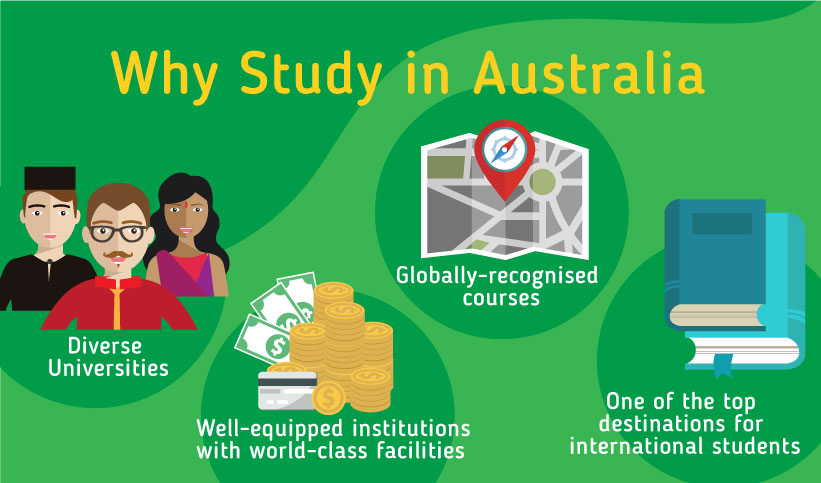
The “Land Down Under” – as it is also often called – is home to about 480,092 international students. Most of them are in one of the two world’s best student cities – Sydney, sitting on Top 13th, and Melbourne, sitting on Top 5th. Adding to that, universities and colleges in Australia are very diverse and well-equipped with world-class facilities which have benefitted not just the country, but the world.
Plus, Australian institutions are simply the best. They rank among the Top 100 schools in the world and once you enrol in a university or college in Australia, you are assured to have globally recognised course, and quality education is guaranteed.
Higher Education in Australia
Australia is well-represented in major university ranking systems given the quality of its institutions. Not only are the universities in Australia rank high due to their proven track record, but the country itself is on top of student satisfaction and global reputation.
The country’s highest ranking institution, Australian National University is located in the country’s capital, Canberra. The University of Sydney and the University of New South Wales are based in Sydney. Meanwhile, Melbourne has the University of Melbourne and Monash University, and Perth has the University of Western Australia.
Top Universities in Australia
Australia is home to 43 universities – 40 Australian universities, two international universities, and one private specialty university. There is also at least one university campus in each state or territory. So if you love a particular city in Australia, there’s a good chance you’ll find a prospective university there.
Seven of Australia’s university have the prestige to be a part of the Top 100 universities in the world, according to the QS Top Universities rankings of 2017/2018. These are the Top 10 universities in Australia:
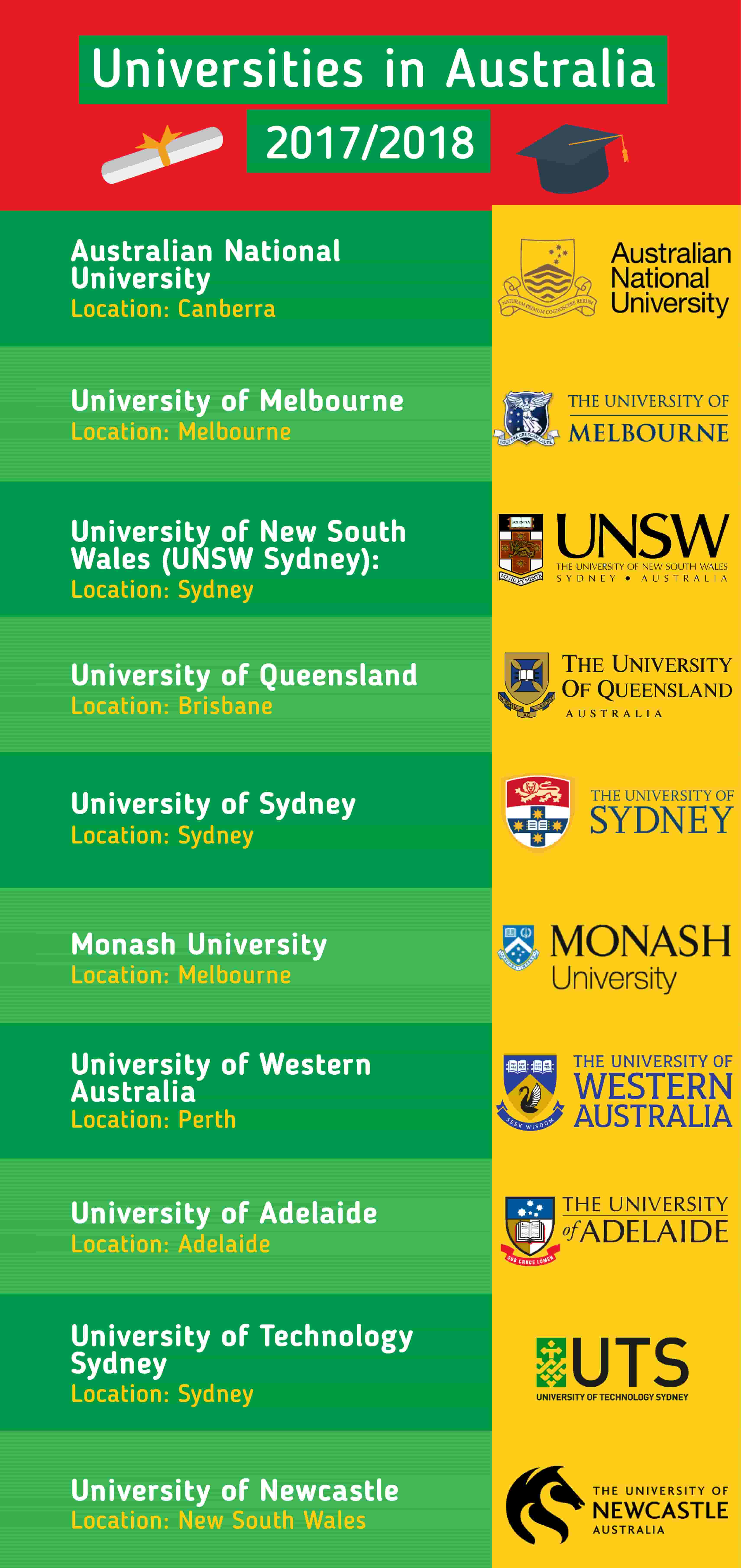
Pathway to Studying in Australia
The length of your study depends on the path you wish to take. Here’s a basic duration of studying in Australia
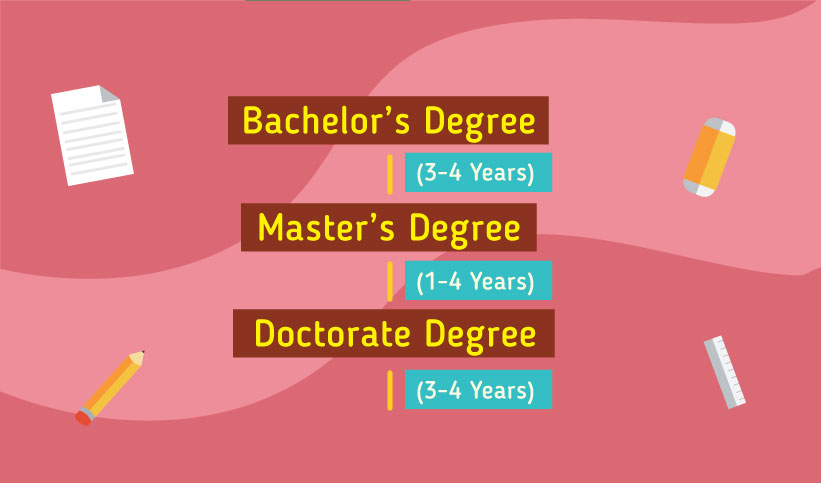
After Study Opportunities in Australia
Several options are available for you if you want to stay in Australia. You can pursue a higher level of education, specialise in another field or study, and even work to put your new knowledge and skills to use.
Sounds exciting? Well, you will need to check whether your visa allows you to do so. Head to the Department of Immigration and Border Protection (DIBP) to see your visa options.
Applying to Study in Australia
- Decide on the course and where you want to study. Here’s a list of Australian universities for you to get started. If you can’t make up your mind and need help, get in touch with us for free counseling.
- Submit your application and necessary documents to the institution.
- Receive and accept a Letter of Offer from the institution.
- Receive your electronic Confirmation of Enrolment (eCoE).
- Plan your travel to Australia.
- Applying for your student visa.
- Get student visa approval.
- Fly to Australia!
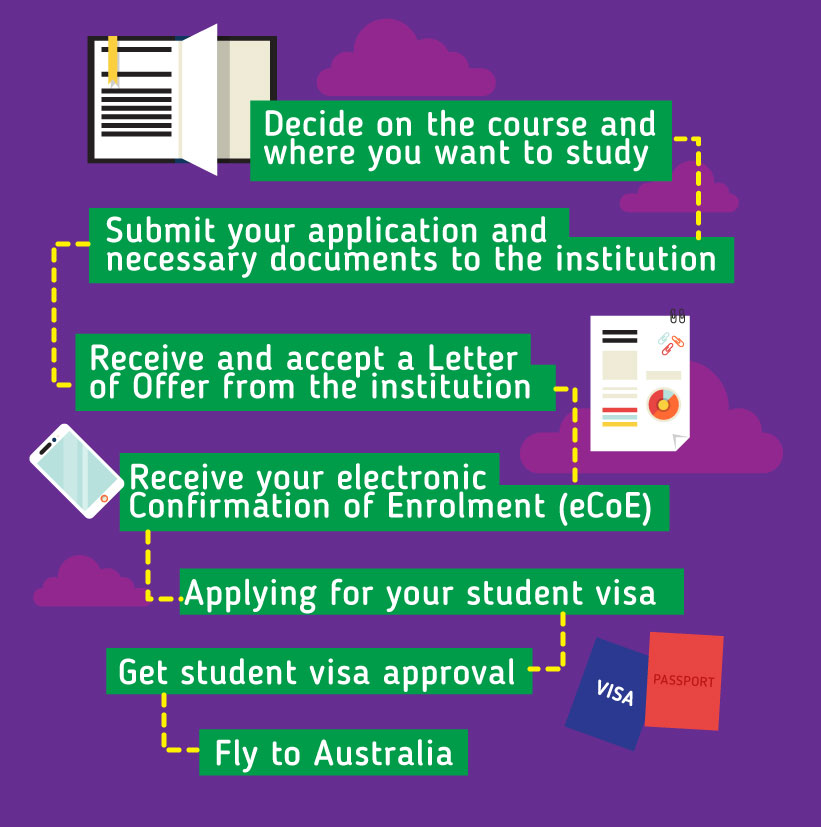
Language Requirements
Being an English-speaking nation, you must show evidence of English proficiency when you send an application to an Australian university (for example, TOEFL or A-Level English, all tests which can be taken in your home country, usually).
If your application is successful, an electronic confirmation of enrolment (eCoE) will be sent which can be used to apply for a student visa.
Did you know? New Zealanders need not apply for a visa to Australia; they are already entitled to one. However, students from other countries are required to obtain a student visa upon confirmation of acceptance to their university of choice.
Visa Requirements
Once you are ready to apply for your school, it is time to process your visa. You must submit all your documents for your visa application in English to proceed with your application.
Requirements for a student visa to Australia can be applied using the following documents:
- Acceptance letter from your university, to study a course registered on the Commonwealth Register of Institutions of Courses (CRICOS) in Australia
- Financial stability of a particular amount, usually AUD18,610 showing proof that you will be capable of paying for your living expenses for the first year of your course
- Purchase of Overseas Student Health Cover (OSHC) for health insurance, which might require you to complete a medical check-up
- English language proficiency through your secondary education or English tests such as the IELTS of TOEFL
- Proof of no prior criminal record
- Prior academic record
- Form 157
- Four passport pictures
Did you know? There are three types of visas available for potential students in Australia –Vocational Training and Education, Higher Education, and Postgraduate Research. For further details, you should visit the website of your chosen university on how to go about with your visa application, four months before the start of your intended course.
Tuition Fees
The biggest possible concern for students when considering an education abroad is the annual tuition fees, as listed below here. However, you should be aware that there is a significant difference between tuition fee costs between Australian student and international students like yourself- tuition fees tend to be much higher in Australia for foreigners.
| Study Level | Tuition Fee, Per Year, in AUD | Tuition Fee, Per Year, in USD |
|---|---|---|
| Foundation/Pre-U | 15,000 – 37,000 | 11,000 – 28,000 |
| Diploma | 4,000 – 22,000 | 3,000 – 16,000 |
| Bachelor’s Degree | 15,000 – 33,000 | 11,000 – 24,000 |
| Master’s Degree | 20,000 – 37,000 | 15,000 – 28,000 |
| Doctorate Degree | 20,000 – 37,000 | 15,000 – 28,000 |
